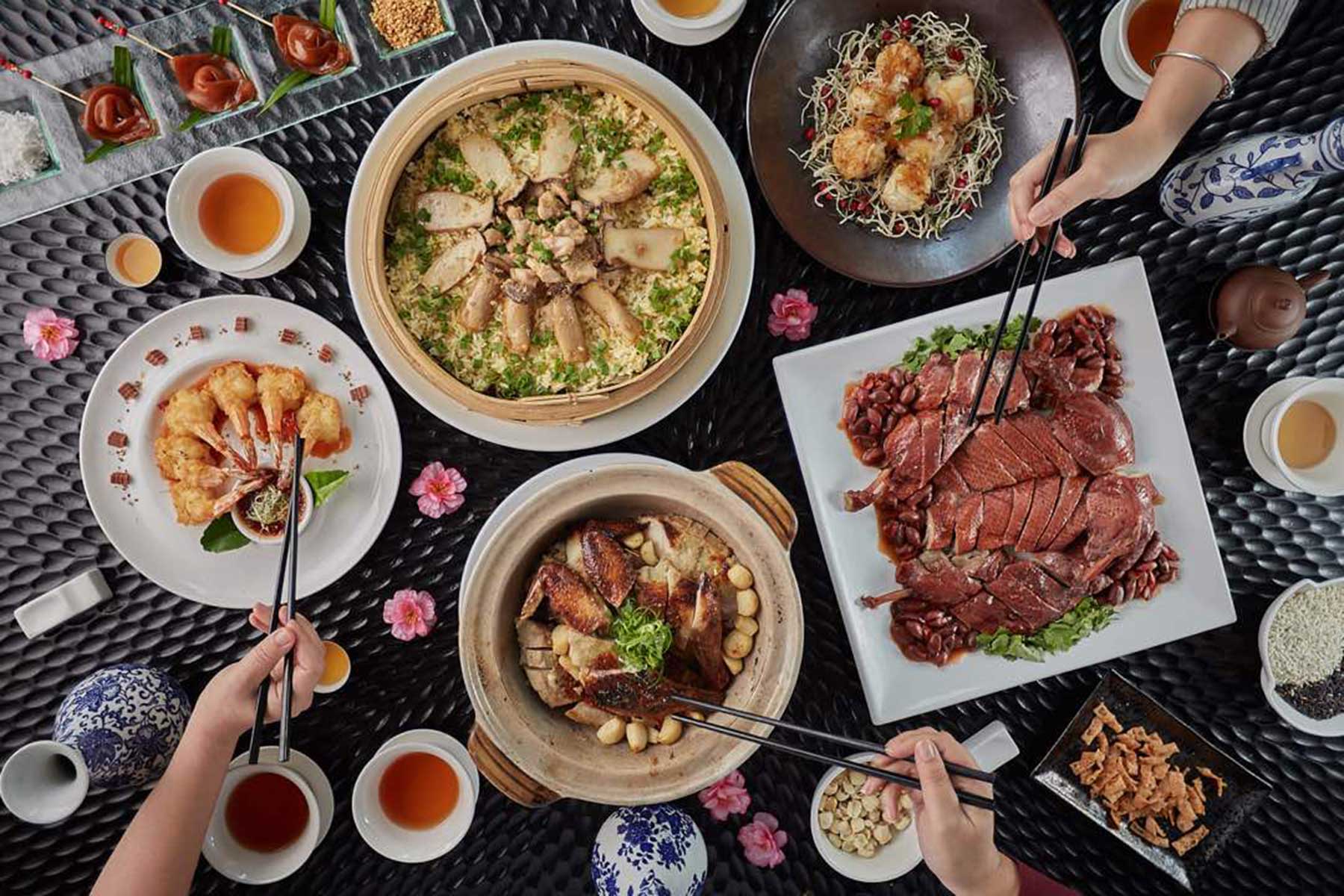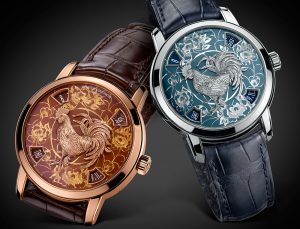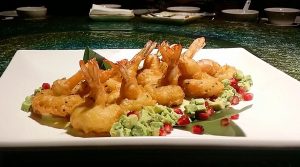Chef Tan Tzaan Liing of Five Sen5es, The Westin Kuala Lumpur shares why certain dishes are staples in the lavish course meals served during Chinese New Year.
Mention Chinese New Year and there are a few things that come immediately to mind – yee sang, ang pau and of course, lots of mouth-watering good food.
You’ll also notice there is a patterned staple every festive season in what the Chinese eats. There will be abalone and fish maw among others. Let’s not forget the ubiquituous mandarin oranges nor the sticky and oh-so-indulgent sweet rice cakes.
Words and symbols play a big role among the Chinese. Homonyms (words that are pronounced the same but have different meanings) matter a big deal in their everyday lives and beliefs.
With Mandarin oranges, the name of the fruit (kam) is also the same as the pronunciation for gold, so giving them out during Chinese New Year is symbolic of handing out gold to your friends, family and neighbours.
This belief goes beyond just mandarin oranges. Chef Tan Tzaan Liing of Five Sen5es, The Westin Kuala Lumpur shares why certain dishes are staples in the lavish course meals served during Chinese New Year.
Yee sang
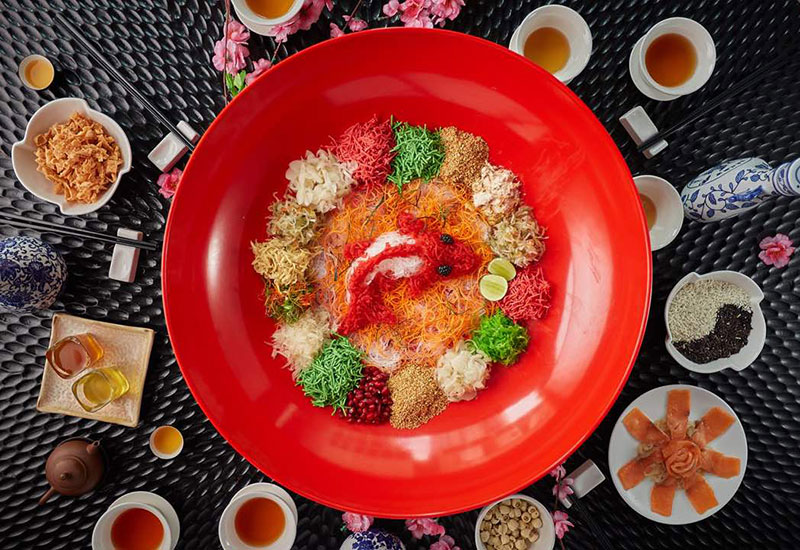
When this colourful salad appears on menus, you know it’s Chinese New Year. It is tossed (the messier, the better!) at the start of a meal to symbolise good luck and fortune falling everywhere. “Yu means abundance and sang means growth. When combined, it symbolises that your fortune and good tidings will grow and multiply throughout the year,” Chef Tan tells.
Five Sen5es’ yee sang is served in an extra large red bowl this year to “hold in” all your good fortune and prosperity even as it falls all over the place during “lou sang”.
Fish
Fish (魚; yú) is almost always guaranteed on the menu as it has a similar pronunciation to the word abundance or leftovers in Mandarin. “In Chinese, we have the saying ‘nian nian you yu’ which means may you have a surplus of fortune every year.” Some will deliberately leave leftovers of the fish in keeping with this tradition.
Prawns
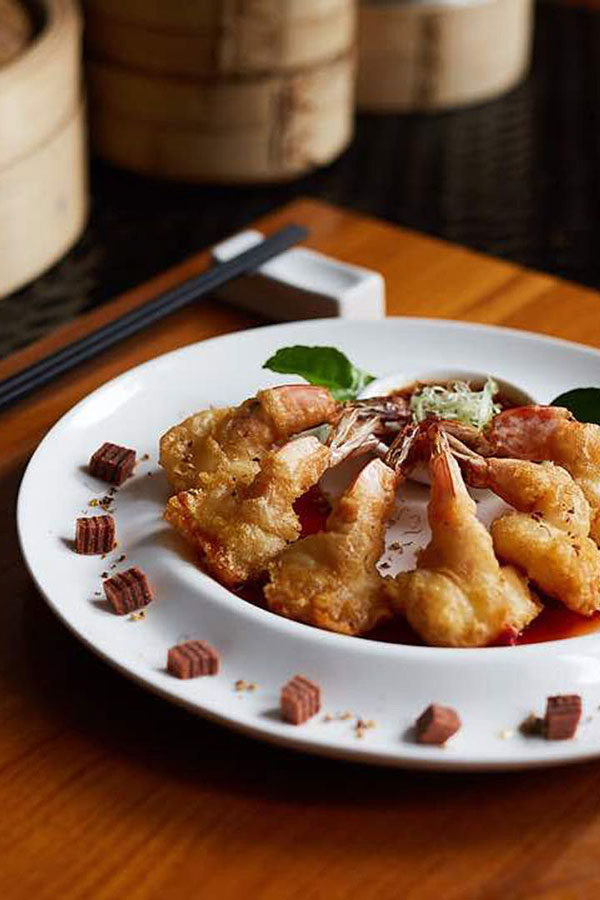
Prawns are also a huge staple in Chinese New Year meals because its pronunciation in Cantonese (har) echoes the sound of ringing laughter. “According to tradition, when you eat it, you will be filled with happiness and laugh ‘har har.’ The more you eat, the happier your family will be in the new year.”
Chicken/duck
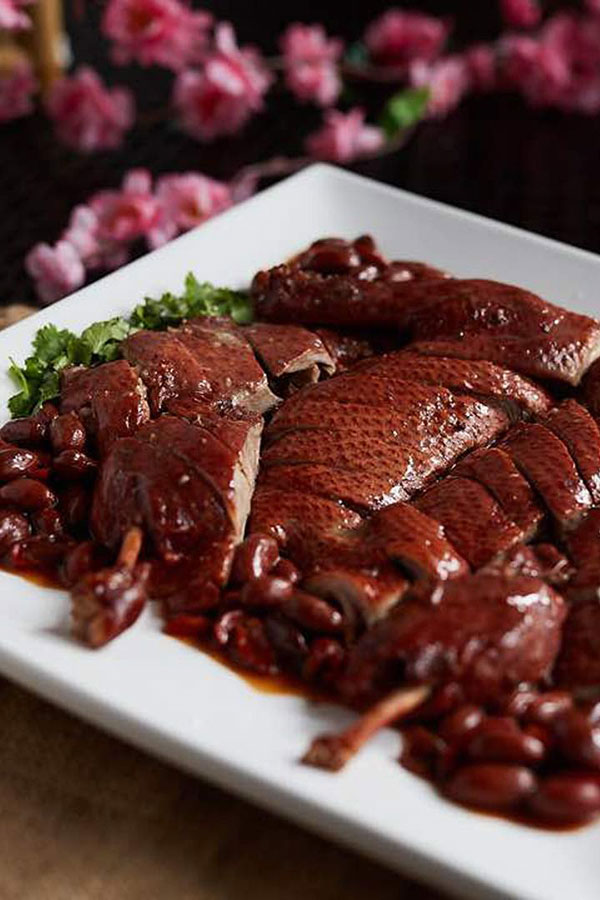
A whole chicken or duck is usually served for Chinese New Year, complete with head, feet and tail, as it symbolises completeness. This applies to areas like wealth, health and, of course, the togetherness of family. “I also cooked the duck with red yeast rice to give the meat a reddish colour. For Chinese, red symbolises good luck and fortune,” Chef Tan adds, highlighting his Braised Duck with Red Yeast Rice and Peanut dish.
Scallop
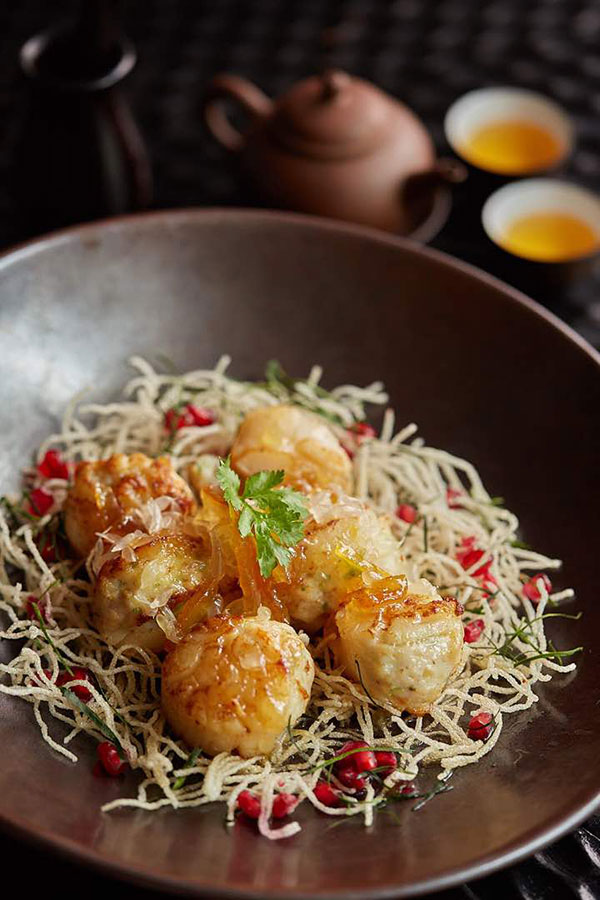
While scallops don’t necessarily have a homonym in Chinese, its shape plays a role in its feature on CNY menus. “Scallops are round in shape, which represents oneness. It’s integral to the concept of reunion during Chinese New Year.”
Vegetables
The vegetables balancing out all the meaty dishes are also selected with thought put into them. Longer vegetables like bok choy or kai lan represent long life, while leafy greens like cabbage or sang choy represent growing fortune. “There’s also a saying about leafy vegetables in Cantonese that goes, ‘hoi chi san yip’, which means starting a family. In other words, it can mean fertility or togetherness,” Chef Tan says.
Nian gao
When it comes to dessert, none is more popular than sticky rice cake, also known as nian gao or New Year cake. Even Chef Tan says, “This is the simplest interpretation of all. Translated literally, it means “high year” – representing that all good things are to come at a high rate. The Chinese will say “nian nian gao sheng” as well wishes, meaning may you get better and better in your studies, career or life.”
Pumpkin
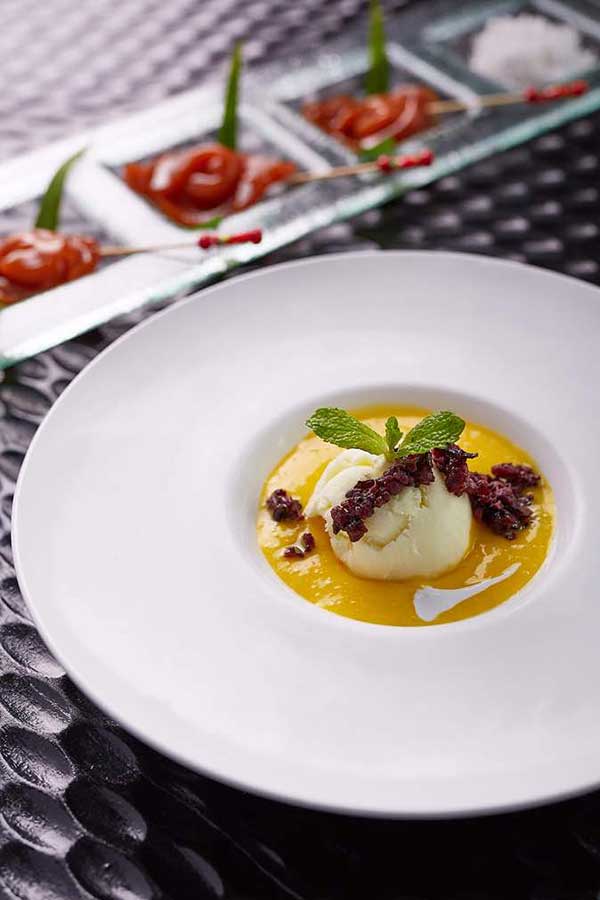
Chef Tan doesn’t stop at nian gao. Believing Chinese New Year meals should end on a sweet note, he adds a final dessert based on another Chinese homonym – pumpkin (kam kuat). “Like kam (mandarin oranges), the word means gold, so eating it represents wealth and prosperity.”
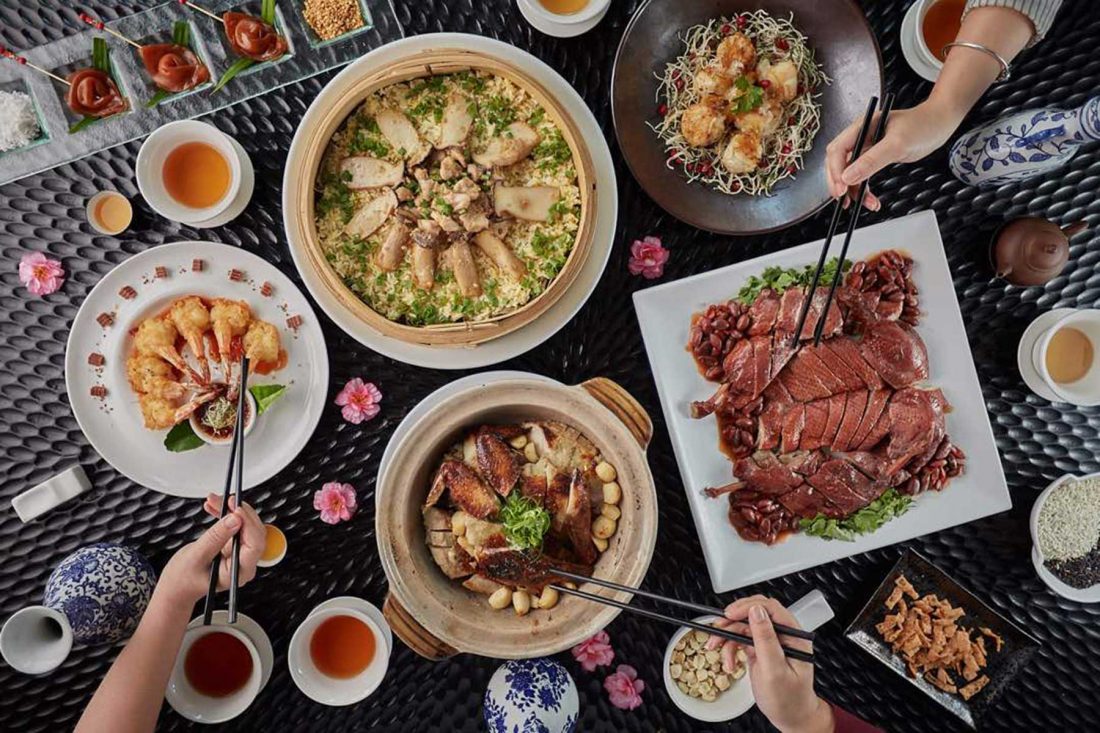
For reservations or more information, please contact Westin Dining at 03 2773 8338 or email westindining@westin.com.
Images: Courtesy of The Westin Kuala Lumpur


